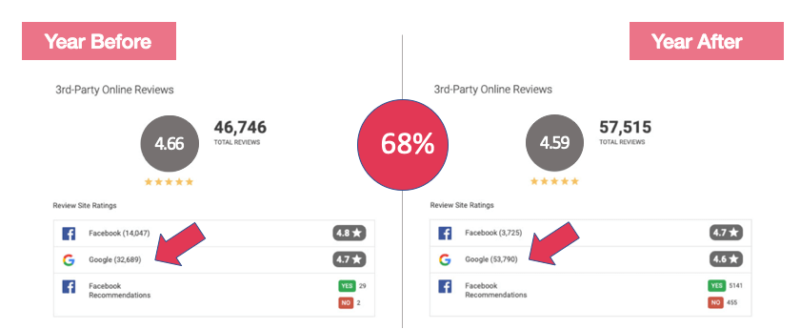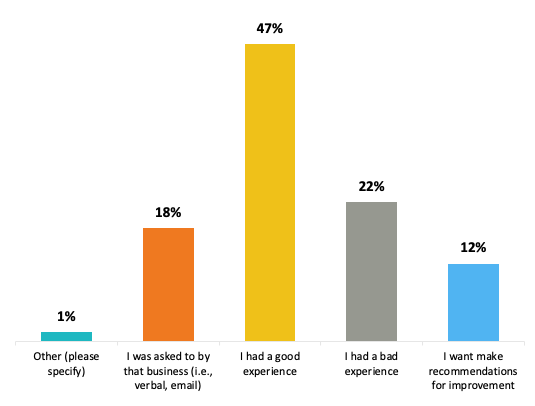Study: Killing ‘review gating’ doesn’t hurt scores and grows overall volume
GatherUp's examination of internal data shows benefits of inclusive process.
Not long ago, there were many companies in the reputation management segment doing what came to be called “review gating.” This is the process of soliciting customer feedback and sending satisfied customers down one path and others with negative sentiment down another.
Gating holds almost no benefits. The “positive” path typically leads to relevant review sites including Google, Yelp and TripAdvisor. Those who express negative views are shepherded into some sort of customer service resolution or “make good” process. This approach, though arguably a form of consumer fraud, has been seen as a way to optimize positive online review scores. But an analysis of customer data by GatherUp (previously “GetFiveStars”) shows review gating yields almost no benefits to the business and getting rid of it can significantly boost review counts.
Yelp has long banned selective review solicitation and, as of last November, Google did as well. The latter declared that review gating was now against its guidelines. Specifically, Google’s policy says: “Don’t discourage or prohibit negative reviews or selectively solicit positive reviews from customers.” Like Yelp, Google came to see this approach as a self-interested move to protect the integrity of reviews on the platform. Still, there are lots of fake reviews on the major local consumer platforms, including Google.
Review gating: counts/scores before and after elimination

Nearly 70% volume increase. GatherUp sought to answer the question, “Does review gating impact star-ratings?” It looked at “roughly 10,000 locations that were in our system the year before the switch with gating turned on and compared those same locations after gating was turned off.” It found that “gating had very little impact on the average star-rating but that NOT gating saw a significant increase in review volumes.”
In the period following the elimination of gating, Gather up saw review counts grow significantly in the aggregate, by almost 70%. Overall ratings on Google and Facebook went down slightly, but almost unnoticeably. On Google, for example, average star ratings declined from 4.66 to 4.59 without any filtering or selective solicitation. However, review volumes grew from over 32,000 to more than 53,000 on Google.
More reviews are better. A 2019 study from Womply found that review volume was strongly correlated with small business revenue. Another recent study from Uberall found that conversions actually suffered for businesses with 5-star ratings compared with those that had lower but still positive review scores. This is because “perfect scores” are viewed with more skepticism by consumers and suggestive of fraud.
A 2018 study by Thrive Analytics for SOCi reinforced what other studies have also shown: people tend to write more positive reviews than critical ones. In the chart below “I had a good experience” was the top review-writing motivation by 2X over “I had a bad experience.” As further evidence of this, 69% of Yelp reviews are 4 stars or better.
Reasons people write online reviews

Why we should care. Google itself says that increased review volume will improve local rankings: “Google review count and score are factored into local search ranking: more reviews and positive ratings will probably improve a business’s local ranking.” GatherUp showed that removing gating increased review volume without adversely impacting aggregate scores.
The GatherUp data and other evidence are clear. If you’re working with a vendor that is currently using review gating you should either ask that vendor to stop using it for your account or find another vendor, for multiple reasons. It doesn’t help you and there’s actually an opportunity cost in not opening up to reviews from all of your customers.
Contributing authors are invited to create content for Search Engine Land and are chosen for their expertise and contribution to the search community. Our contributors work under the oversight of the editorial staff and contributions are checked for quality and relevance to our readers. The opinions they express are their own.
Related stories